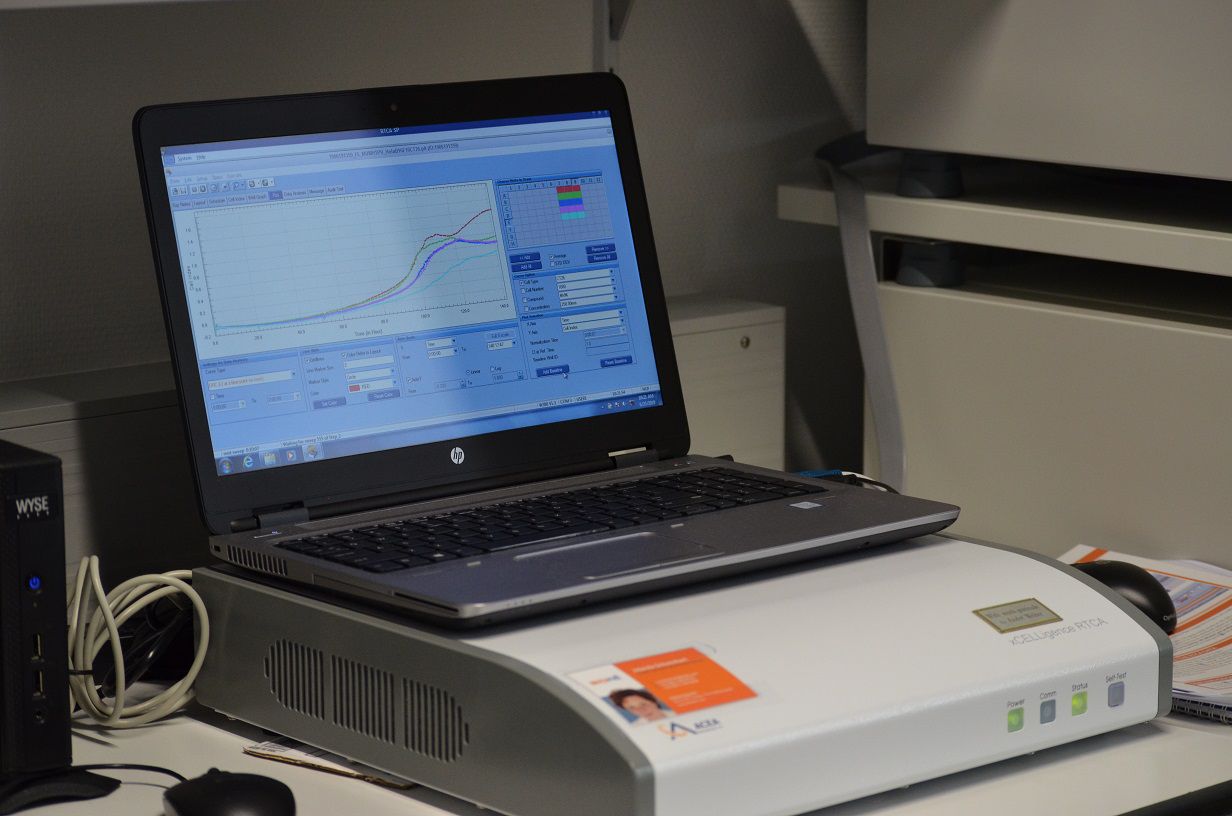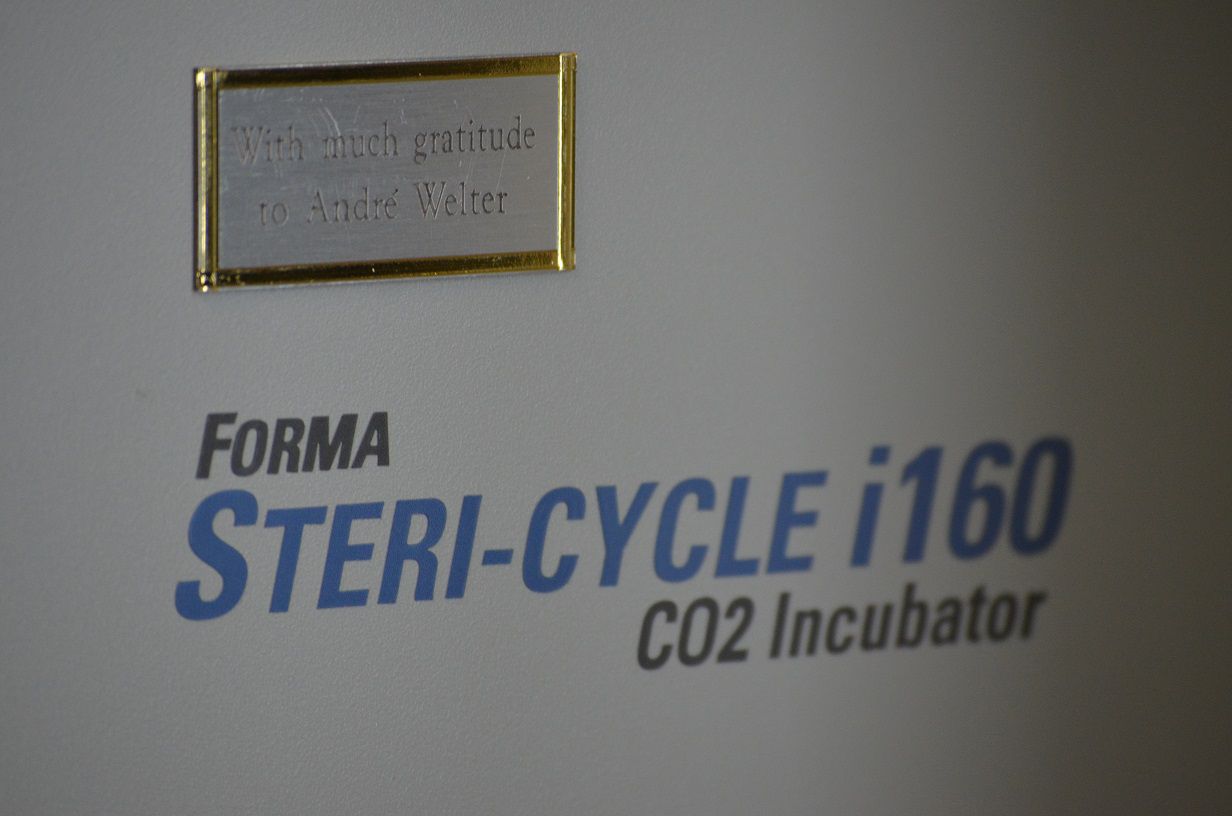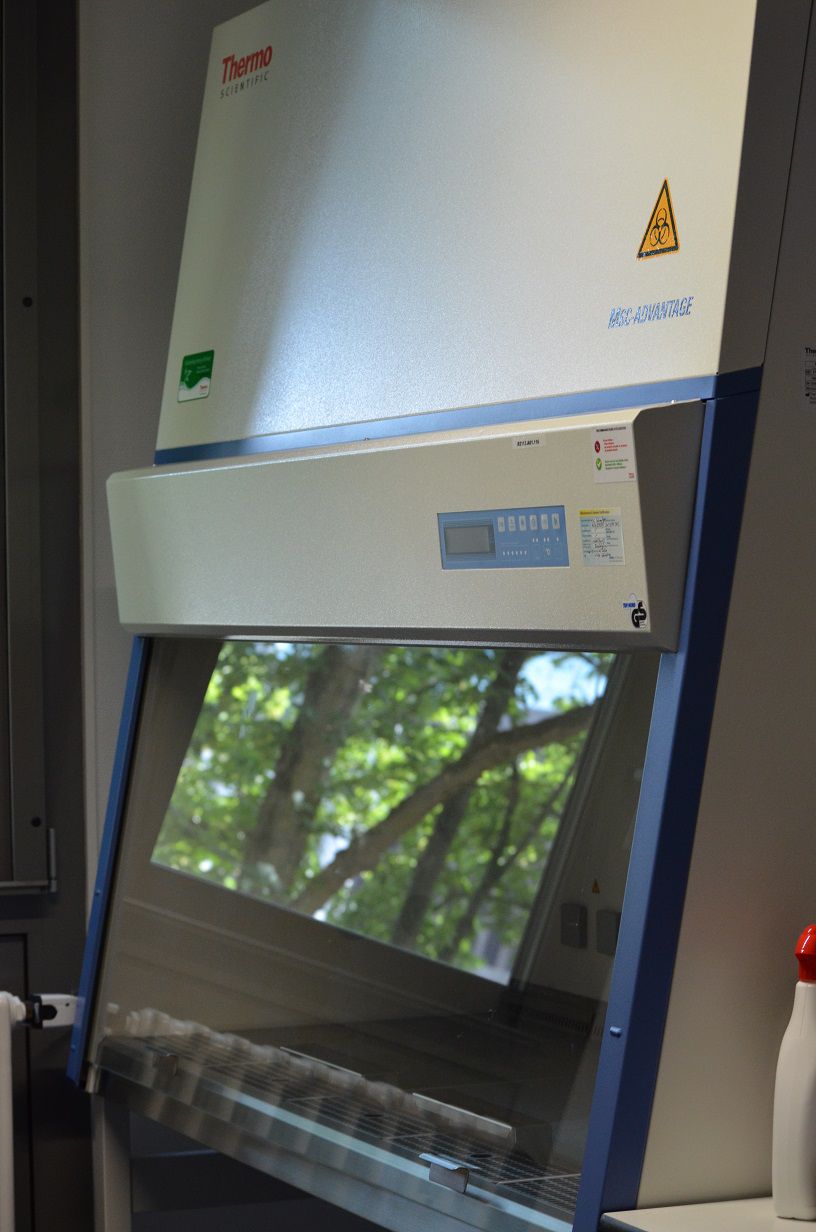The Laboratory of Oncolytic Virus Immuno-Therapeutics (LOVIT) at LIH’s Department of Oncology received a generous private donation to support its activities in cancer research. Mr André Welter, retired engineer and Luxembourg national, supports the research group with 100,000 Euros.
LOVIT, headed by Dr Antonio Marchini, was founded in 2017 as a joint undertaking between LIH and the renowned German Cancer Research Centre (DKFZ) in Heidelberg, Germany. It develops new innovative strategies to fight cancer in the recently emerged field of oncolytic virotherapy, an approach that uses a specific type of viruses to destroy cancer cells. Oncolytic viruses are promising anti-cancer agents because they selectively kill cancer cells and elicit on top a robust anti-cancer immune response.
As engineer, Mr Andre Welter developed an innovative purification process for wastewater treatment that has been adopted by SIDERO - Syndicat intercommunal de dépollution des eaux résiduaires, an intercommunal union for water treatment in Luxembourg. Mr Welter now offers the sum he received from the licensing rights to the research group at LIH. ‘Mr Welter read about our research activities when we communicated about the creation of the laboratory and decided to support us, as he is sensitive to the topic of cancer research’, states Dr Marchini. ‘I am impressed by this philanthropic gesture that came completely unexpected. So to say, the research work that Mr Welter did as an engineer to improve wastewater management now serves to finance application-targeted biomedical research.’
The donation by Mr André Welter allows the research group to acquire new equipment essential for daily laboratory work. Two incubators and a laminar flow hood for cell culture could be purchased as well as an instrument to monitor cell growth to test the effect of treatment on cell proliferation in real time. ‘We are very grateful for this donation. The new equipment will enable us to optimise the cell culturing process and experiments and see the efficacy of our virus-based therapies ’, adds Dr Marchini.
Equipment acquired with the donation



